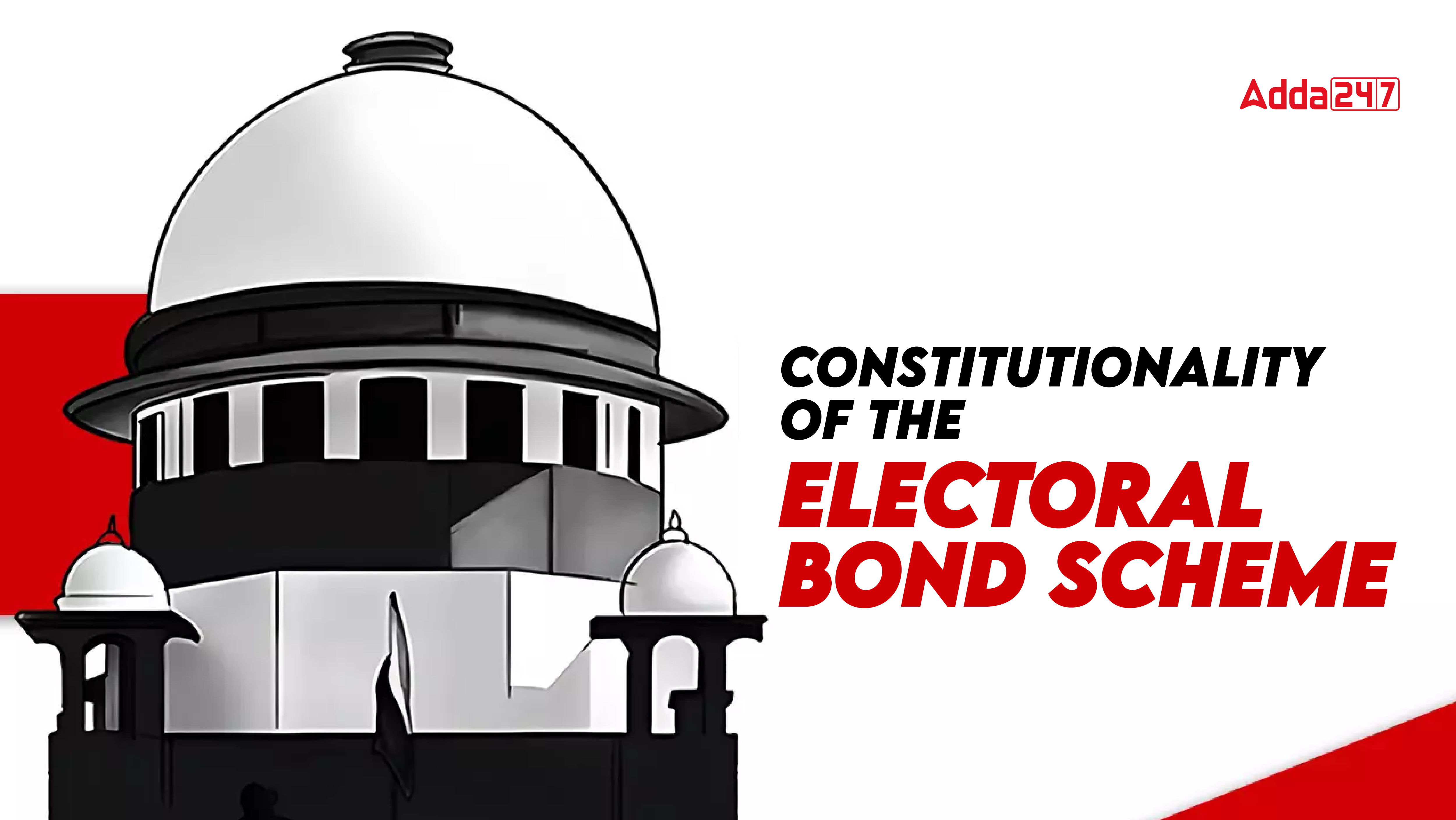Table of Contents
The Hon’ble Supreme Court of India in the case of Association for Democratic Reforms & Anr. v. Union of India & Ors (2024)SC on February 15 declared an electoral bond scheme as unconstitutional. The Hon’ble SC held that anonymous electoral bonds violate the Right to Information under Article 19(1)(a) of the Constitution of India.
Constitutionality of the Electoral Bond Scheme
- The Electoral Bond Scheme is a financial mechanism introduced by the Government of India in the year 2018, to enable individuals and corporate entities to donate money to political parties.
- Under this scheme, donors can purchase electoral bonds from specified branches of authorized banks in certain denominations. These bonds can then be donated to registered political parties, which can encash them through designated bank accounts, within a stipulated time.
Features of Constitutionality of the Electoral Bond Scheme
- One of the key features of the Electoral Bond Scheme is the anonymity it provides to donors, as their identities are not disclosed to the public or the recipient political party.
- There was no cap on the number of electoral bonds that a person or company could purchase.
- Electoral bonds are issued in specific denominations ranging from ₹1,000 to ₹1 crore or more.
- The validity or maturity of electoral bonds is 15 days from the date of their issuance.
- Only the political parties registered under Section 29A of the Representation of the People Act, 1951 (RPA, 1951) which secured at least 1% of votes polled in the last General Election to the Lok Sabha or the State Legislative Assembly are eligible to receive Electoral Bonds.
Amendments of Constitution
The government amended four Acts to introduce the Electoral Bond Scheme via the Finance Act of 2016 and 2017. They are-
- The Finance Act amended Section 2(1)(i)(vi) of the Foreign Contribution Regulation Act, 2010 (FCRA), which defines “foreign source”,
– To allow foreign companies who have a majority share in Indian companies to donate to political parties.
– Previously, foreign companies were prohibited from donating to political parties under the FCRA and the Foreign Exchange Management Act, of 1999. - It amended Section 13A of the Income Tax Act,
– Exempting political parties from keeping a detailed record of contributions received through electoral bonds. - It amended Section 31 of the RBI Act.
– This permitted the Union government to authorise any scheduled bank to issue electoral bonds. - It introduced a proviso to Section 29C of RoPA,
– Exempting political parties from publishing contributions received through electoral bonds in “Contribution Reports.” - It amended Section 182 of the Companies Act, 2013 which removed the upper limit on how much a company could donate to a political party.
– Previously companies could only donate up to 7.5 percent of three years of the company’s net profits.
– Electoral bond donations made by individuals or entities are tax-exempt under Section 80GG and Section 80GGB under the
Income Tax Act, 1961.
Ratio Decidendi of SC
- The said scheme violates the fundamental right to information under Article 19(1)(a) of the Constitution.
- The amendment made to Section 182 of the Companies Act, 2013, permits unlimited political contributions by companies, to be manifestly arbitrary.
- It is not fulfilling the purpose for which it was introduced ie., to curb black money and to bring transparency to election funding.
- It disturbs free and fair elections.
- It enables backdoor lobbying and quid pro quo.
- It directly influences the integrity of the electoral process and the transparency of political funding.
Conclusion
The Government had described the scheme as an “electoral reform” in a country moving towards a “cashless-digital economy”. Between 2016-17 and 2021-22, 7 National parties and 24 Regional parties received a total donation of Rs.9,188.35 crore from electoral bonds. The name “Electoral Bond” is a misnomer as the money can be used for any purpose after it is withdrawn since no one is asking how the parties spent the money.



 TSPSC Group 1 Question Paper 2024, Downl...
TSPSC Group 1 Question Paper 2024, Downl...
 TSPSC Group 1 Answer key 2024 Out, Downl...
TSPSC Group 1 Answer key 2024 Out, Downl...
 UPSC Prelims 2024 Question Paper, Downlo...
UPSC Prelims 2024 Question Paper, Downlo...





